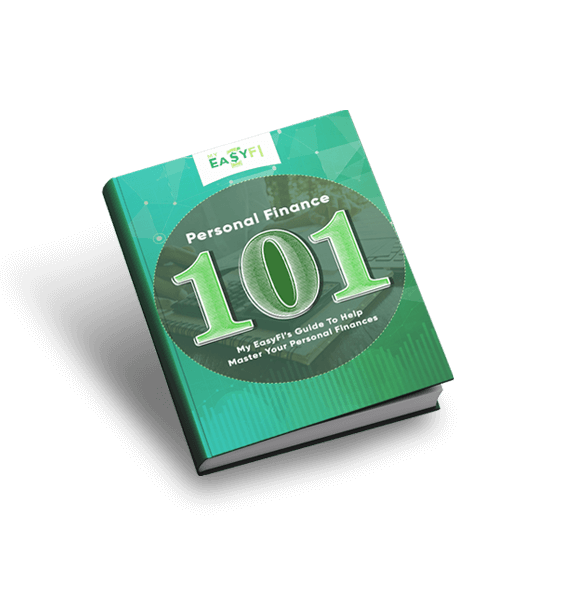If you have a million dollars, but don’t know how to organize finances, you could be just minutes away from going broke. On the flip side, if you don’t have a million dollars but are still capable of sustaining your finances, chances are that you will be able to enjoy a lifetime of stability without going bankrupt. That’s the power of financial organization and management.
With the above analogy in view, lack of organization hurts your finances as much as you being living hand-to-mouth. Imagine losing bill payment dates, overspending, and gaining a bad credit score will restrict your ways to make your finances work for you.
Organizing your finances doesn’t mean that you reduce everything to zero and lock out the joys of life. Instead, it should be practice that liberates you of the unfavorable experiences impacting your life. So, how to organize personal finances without committing a blunder?
Let’s get straight to organizing and clearing the money clutter now.
1. Set Your Financial Goals And Align Them
The first step on how to organize finances begins with the idea about what you want to accomplish. That means setting goals and coming up with future plans for several purposes, such as retirement, vacation, college education, debt repayment, house or car purchase and so on. Recognizing your goals and prioritizing them will help you keep on your toes.
Once you have your goals set, you then need to plan on how you’re going to achieve each goal. It’s going to be an organized process, which will help you see the framework for maximum execution of your plan. You may write down the goals and associated finances to get a clear idea as doing so will keep you motivated to achieve them in the specified timeline.
2. Watch Your Monthly Budget
The next step after defining your goals is to set up a monthly budget that allows you to carry out your goals effectively. From your daily activities to your long-term goals, the budget will help you reevaluate your spending habits. It would reflect how you spend and save.
Creating a budget can be hard at first as it might put a leash on most of the spending., but let’s write it down on a paper first. Count your net worth first, then count your expenses from primary to secondary ones, and create a rough draft of your monthly spending. You may want to gather all your financial records and statements to see how your monthly expenses count up to. With everything in front of you, cross out the ones that you can adjust and manage.
3. Use A Financial App
Several apps these days offer much more than just investment options. You can use the budgeting apps online to monitor your daily expenses as well as your household finances.
For instance, My EasyFi helps you improve your relationship with money and your woes related to financing. The app not only teaches you how to organize finances, but also unlocks greater opportunities like becoming a personal finance savvy and make more money on the side. You can also check the other apps in the market, but you must make sure if they are secure enough.
4. Track Your Spending And Savings
There are times when you get caught in the sale whirlwind and it seems impossible to break the overspending cycle each month. You can lose the track of how much you spent, but now’s the time to fix that. When you start tracking your spending and savings, you are likely to find out where your money is going.
Are you spending too much on takeout? Is brewing coffee at home cheaper than regular Starbucks? Are you saving enough to pay for college debt? Or are you losing your goals in focus? Questions like these will enable you to see through your spending along with implementing healthy habits.
5. Keep Every Bill In One Place
Searching for bills at the pay date is one of the worst imaginable scenarios. Pay attention to where you keep your bills in organized in one place. You may also keep a file or a clear bag or even save digital copies of your bills in cloud system like Dropbox, if you don’t feel like keeping the clutter.
Doing so will help you retrieve the bills, when you know where you’ve placed them. It will reduce hassle for you, keeping you relaxed and mindful. With that, you’ll know how to organize finances as well becoming organized in your daily life.
6. Pay The Bills As Soon As You Get Them
Bill payment has several options, of which cash and online payments are the most important ones. In both cases, however, you have to be careful and know that the bill should be kept a priority. You may pay it with cash, but when it comes to online methods, you may pay close attention.
Make sure you have enough account balance to pay the bill. Also, if you get a duplicate bill, you don’t have to pay it twice. Whenever you receive the bill, call the creditor to schedule an online payment system with your account.
7. Know Your Financial Position
Would all the above points guide you on how to organize your finances? No. Before you do anything, know your financial position. You must know what you own and what you owe. Determine how much money you have in cash, in your accounts, in investment, and in savings. Knowing so will provide you a deep insight into your current goal tracking system.
This way, you will know every investment opportunity that comes your way and will help you see if your goals are being achieved in the right direction.
8. Use A Checklist For Expected Bills
Does your bill arrive on the same date every month? Or do the dates fluctuate? No matter what the case, create a checklist at the start of each month for the bills expected. You can keep the list prepared on the device where you manage your finances.
Using this checklist, you’ll keep track of the bills and payments, easing your way out of the fear of losing bills and other issues.
9. Prioritize Paying Debts
When your goals are clear as your organized budget, you can either set up a debt repayment plan yourself or collaborate with your debtors and come up with a plan to clear your debt asap. Creating a purposeful plan backed with a robust approach.
With that, you will create a meaningful relationship with money, hence passing swiftly across the developing financial stage. If you’re bothered about what debt pay to pay first, you may start with the one with the highest interest rate.
10. Coordinate With The Whom You’re Sharing The Budget
Most households have more than one breadwinner, but that means nothing if you have no knowledge on how to organize your financial life. If you share your expenses with your spouse, partner, or a roommate, you can easily bounce off financial hassles. You should both be aware of how much the other is spending. Look for gaps in the financial system you’ve come up with without blowing your budget.
11. Have Two Bank Accounts
What’s the use of keeping two accounts when you can get all the job done with one? If you want to keep your finances organized, the best way is to have two slots open; one for discretionary spending and saving and the other for payments. This way, you will be saved from accidently spending the payment money.
How To Organize Finances With My EasyFi
Like the points stated above, there are several ideas that could help you organize the money clutter. Financial management can be tough for those who are new to it, but it’s not impossible. Anyone can have financial stability with organization and clarity of goals. You must, however, see that your goals align with your financial position. Having a clear organizational structure every month will help strengthen your finances.

